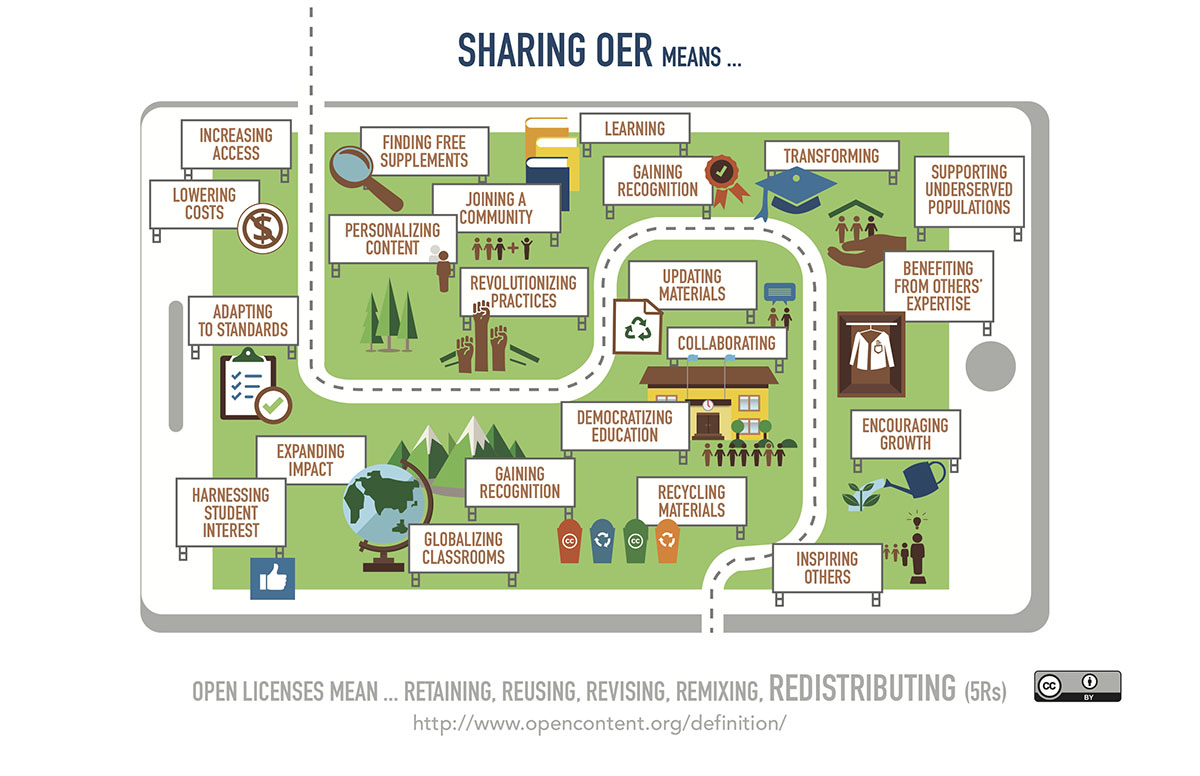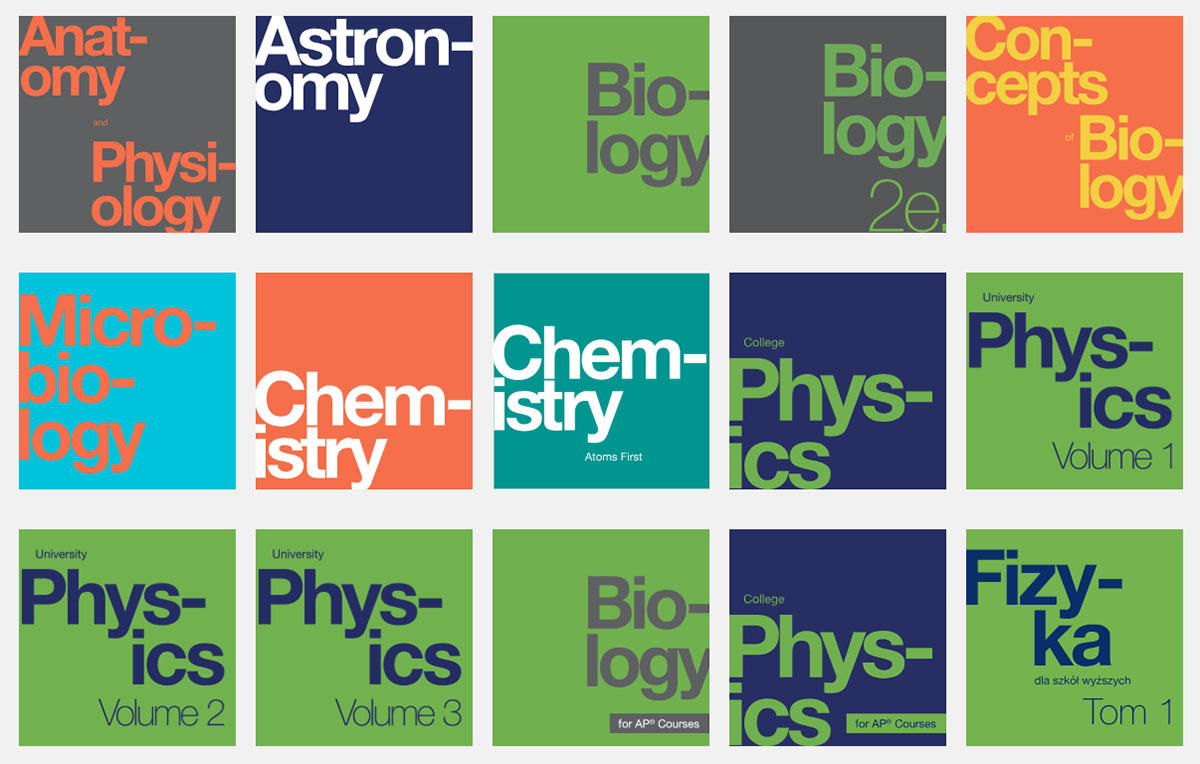If you follow open access initiatives in the news or #OA on Twitter, chances are you have heard about open educational resources (OER). From a $5 million federal grant to fund an open textbook pilot program, to the Texas Higher Education Coordinating Board’s recent announcement of twenty OER grants statewide in Texas, it’s clear that OER are here to stay.
But is UT ready?
What is OER?
As defined by the Scholarly Publishing and Academic Resources Coalition (SPARC), “Open Education encompasses resources, tools and practices that are free of legal, financial and technical barriers and can be fully used, shared and adapted in the digital environment.” Open Education Resources are free to use and access, but the logistics of acquiring, managing, implementing access to, and defining OER is challenging for academic libraries. UT Libraries, along with our campus partners, are working to meet that challenge.
In response to a UT Libraries survey of potential scholarly communication projects for 2018, an OER Outreach Working Group was formed to create tools, resources, and training to help subject liaison librarians engage with OER issues.
What does the OER Outreach Working Group do?
The OER Outreach Working Group is comprised of librarians and professional staff from across campus. We meet monthly, and develop projects that seek to achieve the following:
- Determine gaps in understanding or confidence
- Look at peer institutions and/or best practices in OER education
- Decide on resources to help address deficiencies
- Plan for any informational workshops or the creation of resources
- Get feedback on effectiveness of created resources
- Make suggestions or plans for outreach about OER
Getting started: OER workshop for UT librarians, faculty, and staff
UT Libraries and the OER Working Group hosted 30 participants from departments across campus at a half-day workshop on July 24. The purpose of the workshop was to help campus partners define OER; introduce Creative Commons licensing; learn how to describe OER characteristics and benefits to faculty members and students; and be able to locate OER relevant to their discipline.
Two UT Austin faculty members shared their experience using and adopting OER for their courses. Dr. Jocelly Meiners, Lecturer in the Department of Spanish and Portuguese, uses OER lesson plans and exercises to teach her courses for Heritage Spanish learners. She articulated the need for OER among language faculty and their students, as many specialized courses do not have teaching materials commercially available. Dr. Amanda Hager, Lecturer in the Department of Mathematics, shared her commitment to using OER to help lower financial costs for students and discussed faculty’s challenges to creating, using, and adopting OER. In post-workshop survey responses, many participants noted that hearing from faculty provided the meaningful insights about OER adoption, creation, and use – and would like to hear more from faculty at future workshops.
What’s next for OER at UT?
UT campus partners are ready to learn more about OER. Starting in Fall 2018, OER will be promoted at the new faculty expo and the Working Group will begin updating select LibGuides to incorporate more OERs for student and faculty use. The OER Working Group plans to re-invest in future workshops geared toward specific groups and/or projects, and if you are interested in learning more about OERs please contact UT Libraries Scholarly Communications Librarian, Colleen Lyon at c.lyon@austin.utexas.edu.

Who is the OER Outreach Working Group?
The OER Outreach Working Group is made up of eight members comprised of three organizations:
Center for Open Educational Resources and Language Learning (COERLL)
Nathalie Steinfeld Childre (Publications Manager), Sarah Sweeney (Project Coordinator)
Texas Digital Library (TDL)
Lea DeForest (Communications Strategist)
Gina Bastone (Humanities Librarian for English Literature & Women’s and Gender Studies), Sarah Brandt (Librarian for First Year Programs), Carolyn Cunningham (Social Sciences Liaison Librarian), Lydia Fletcher (STEM Liaison Librarian for Physical & Mathematical Sciences), Colleen Lyon (Scholarly Communications Librarian



 A very timely
A very timely